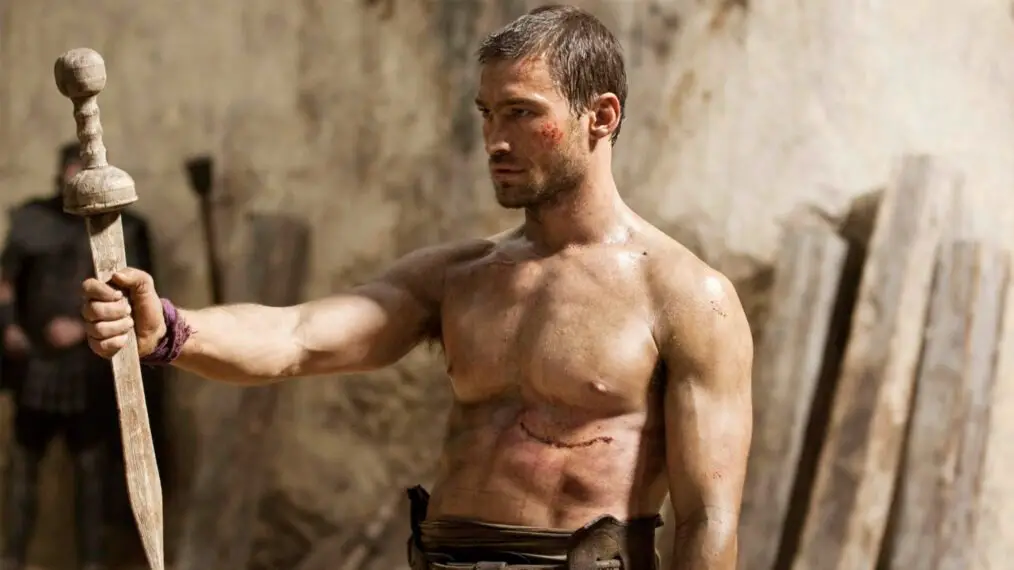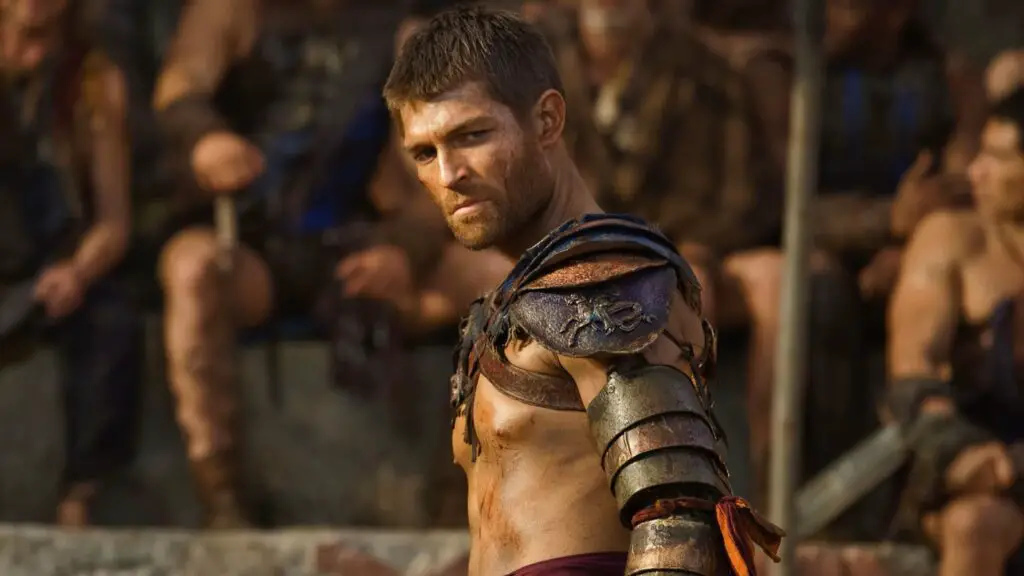“Spartacus: Blood and Sand” presents a riveting narrative that delves deep into the life of its eponymous character, Spartacus, portrayed by Andy Whitfield. The series, which launched on Starz in January 2010, brilliantly brings to life the ancient story of a Thracian gladiator who became a symbol of freedom and rebellion against the formidable Roman Republic. This historical drama blends action, intricate storytelling, and compelling character development to create a vivid portrayal of an era marked by conflict and transformation.
The series, characterized by its vivid depiction of the brutal world of gladiatorial combat and the complexities of Roman society, garnered acclaim for its bold storytelling and visual style. It not only depicts the physical battles in the arena but also delves into the emotional and psychological struggles of its characters, offering a multifaceted view of a turbulent period in history.
A Journey Marked by Adversity and Resilience
The production of “Spartacus: Blood and Sand” was marked by significant challenges, most notably the health struggles of its lead actor, Andy Whitfield. His diagnosis with non-Hodgkin lymphoma led to a halt in production and a shift in the show’s direction. This period was a testament to the resilience and adaptability of the cast and crew, as they navigated these unforeseen circumstances while maintaining the integrity of the show.
The interim prequel series, “Spartacus: Gods of the Arena,” provided not only a narrative bridge but also a tribute to Whitfield’s contributions. The series introduced new characters and storylines, expanding the universe of Spartacus while also honoring the spirit of its original protagonist.

A Global Phenomenon
The global reach of “Spartacus: Blood and Sand” is a testament to its universal appeal. From Canada to the Netherlands, and from the United Kingdom to as far as India and Pakistan, the series resonated with audiences around the world. This global reception underscores the universal themes of freedom, struggle, and resilience that the show encapsulates.
The series’ ability to connect with diverse audiences across various cultures highlights its success in transcending geographical and cultural boundaries. It became a symbol of the power of storytelling to unite people through shared experiences and emotions.
In summary, the upcoming “Spartacus: Blood and Sand” marathon is more than just a replay of a popular TV series. It represents a journey through history, a tribute to artistic resilience, and a celebration of a story that has resonated with audiences worldwide. As viewers tune in this Thanksgiving, they will be revisiting not just a tale of an ancient hero but also experiencing a piece of television history that continues to captivate and inspire.


